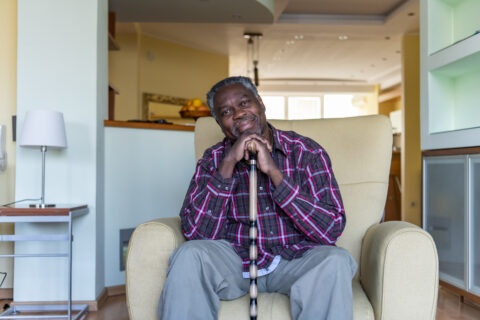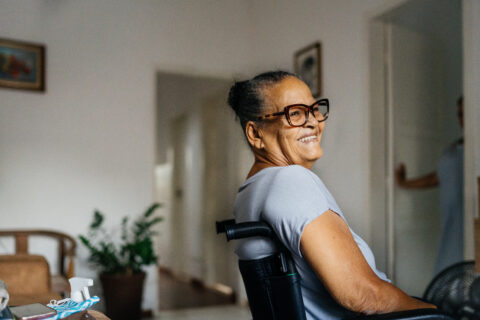When Home Care is Best
Topics
For many aging seniors, there’s no place like home. More than three-quarters of adults over age 50 prefer to remain in their homes long term, according to AARP. But while home is a place of familiar feelings and fond memories, it can also become a bit overwhelming when seniors start to need more assistance.
Fortunately, aging in place doesn’t have to mean aging on your own. For older adults wanting to stay put, home care can bridge the gap between the help that they need and the help that family and friends are able to provide. Here’s how to know when home care may be the best option for your aging loved one.
When chores become too much.
Look and listen carefully. Are dishes piling up in the sink that mom would have never tolerated before? Do the sheets and towels need a wash? Is the refrigerator looking bare? Day-to-day housekeeping and errands can become daunting with age, and subtle signs may indicate that help is needed long before a senior actually asks for it. Home care can take on tasks like groceries, meal prep, laundry and kitchen cleanup to so that seniors and their loved ones save their energy for other things.
When personal care starts to slip.
Too often, an avoidable health event like a fall or a urinary tract infection can send an older person into a downward spiral of declining health. For those who need it, in-home help with activities of daily living such as bathing, dressing and using the bathroom can help prevent such problems before they occur—keeping seniors on their higher path to optimum health.
When loved ones get lonely.
Companionship is one of our most basic needs, and it’s especially important for seniors: Loneliness and social isolation are linked to higher rates of heart disease, dementia, depression and death. Home care can provide a compassionate ear, a hand to hold, a lively discussion, or a friendly competition.
When safety concerns arise.
A home can become hazardous when the challenge of living independently becomes too great. Home care can help keep seniors safely in their homes longer by offering peace of mind that someone is checking in—making sure that medications are taken properly, that the floor stays clear of trip hazards, even that the stove is turned off.
When caregivers get weary.
While it’s natural to want to do everything for your loved one, it’s not always practical. The strain of caregiving can have a detrimental effect on the caregiver’s own health and wellbeing—and it’s OK to ask for help. Home care is completely customizable, and even an hour or two per day or week can make a big difference in lightening the load.
Contemplating the next chapter in your loved one’s story? Click here to find a Bickford Senior Living branch near you and here to learn more about Bickford Home Care.



